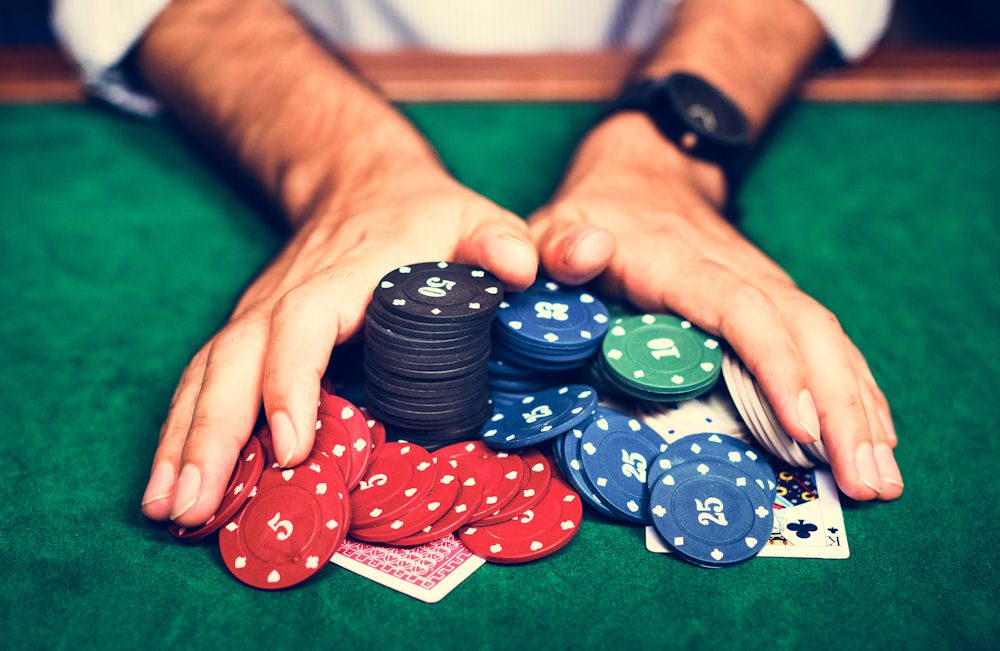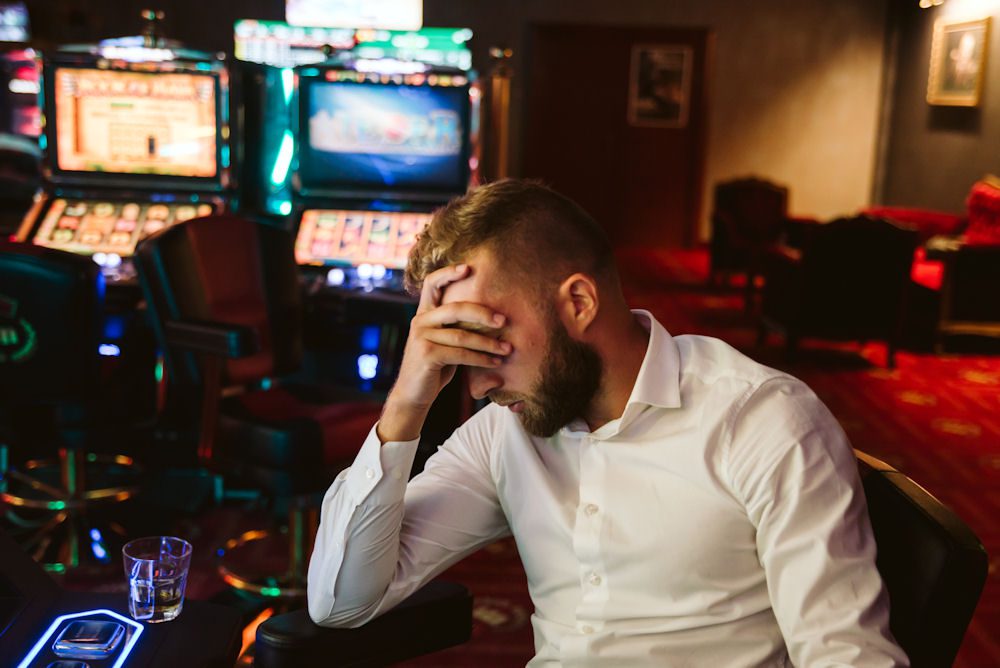Gambling has been a part of society for as long as anyone can remember. Friendly wagers or putting a few bucks towards your favorite team to clinch a win can be a fun and rewarding experience. Dabbling too much in this, however, can lead to a gambling addiction.
Gambling addiction is a complex and often hidden struggle that can profoundly impact individuals and their loved ones. Understanding the stages of gambling addiction is crucial for recognizing the signs early and intervening effectively.
This type of process addiction typically progresses through distinct phases, each marked by escalating behaviors and increasingly severe consequences. From the initial thrill of risk-taking to the final stages of financial ruin and emotional distress, knowing these stages can provide valuable insights into how gambling addiction develops and manifests.
Whether you’re seeking to understand your behavior or support someone you care about, at Northern Illinois Recovery Center in Crystal Lake, Illinois, our team of specialists equips our clients with the knowledge to treat gambling addiction effectively and compassionately.
We explore the different stages of gambling addiction, offering a comprehensive guide to what you need to know. By examining each phase, NIRC aims to shed light on the warning signs of problem gambling, the side effects and impact it has, and available resources for recovery.
What is Gambling Disorder?
 Gambling disorder, often referred to as gambling addiction, is a behavioral condition characterized by an uncontrollable urge to engage in gambling activities despite adverse consequences. It is classified as a mental health disorder that can disrupt various aspects of your life, including personal relationships, finances, and overall well-being. People with gambling disorder often experience persistent and recurrent gambling behavior that they find difficult to control, leading to significant distress and impairment.
Gambling disorder, often referred to as gambling addiction, is a behavioral condition characterized by an uncontrollable urge to engage in gambling activities despite adverse consequences. It is classified as a mental health disorder that can disrupt various aspects of your life, including personal relationships, finances, and overall well-being. People with gambling disorder often experience persistent and recurrent gambling behavior that they find difficult to control, leading to significant distress and impairment.
There are different ways in which this condition can manifest, from frequent and escalating bets to hiding gambling activities and experiencing emotional distress when not gambling. The disorder is driven by a compulsion that overrides rational judgment and often leads to severe financial and personal problems. Understanding gambling disorder is crucial for recognizing the signs, providing appropriate support, and seeking effective treatment to help you regain control and improve your quality of life.
How Does Gambling Affect the Brain?
Gambling can have profound effects on the brain, impacting various neural pathways and altering cognitive and emotional functioning. When you engage in gambling, your brain’s reward system is activated, particularly areas like the nucleus accumbens and the ventral tegmental area. These regions release neurotransmitters such as dopamine, which create feelings of pleasure and reinforcement. This reward response can make gambling highly addictive, as your brain starts to associate gambling with significant pleasure and excitement.
Over time, repeated gambling can lead to changes in brain structure and function. Chronic gamblers may experience alterations in areas responsible for impulse control, decision-making, and risk assessment. These changes can impair the ability to recognize negative consequences and increase the compulsion to gamble despite adverse effects. As a result, gambling disorder can become increasingly difficult to manage, reinforcing the need for effective interventions and treatments to address both the behavioral and neurological aspects of the condition.
How Does a Gambling Addiction Develop?
Gambling addiction usually develops through a combination of psychological, biological, and social factors. It often begins with occasional gambling, where the individual experiences initial excitement and reward. As they continue to gamble, the brain’s reward system becomes more engaged, leading to increased tolerance and a craving for the thrill. This can create a cycle where you feel compelled to gamble more frequently and with higher stakes to achieve the same level of satisfaction.
Several factors contribute to the progression of gambling addiction. Psychological elements, such as a desire to escape from stress or emotional issues, can drive excessive gambling. Biological factors, including genetic predispositions and brain chemistry changes, can also increase your susceptibility to addiction. Social influences, such as exposure to gambling environments or peer pressure, further contribute to the development of problematic gambling behavior. As these elements interact, they can escalate your gambling habits from casual to compulsive, leading to monumental personal and financial woes.
What Are the Early Warning Signs of a Developing Gambling Addiction?
 It is possible to recognize the problem before it gathers full steam. Below are some general early warning signs of developing a gambling addiction:
It is possible to recognize the problem before it gathers full steam. Below are some general early warning signs of developing a gambling addiction:
- Increased frequency: Gambling more often than before or extending gambling sessions.
- Escalating bets: Gradually increasing the amount of money or stakes involved.
- Neglecting responsibilities: Ignoring work, family, or personal obligations in favor of gambling.
- Chasing losses: Continuing to gamble in a futile attempt to recover lost money.
- Preoccupation: Incessantly thinking about gambling or planning the next gambling opportunity.
- Secrecy: Hiding gambling activities from others or lying about the extent of gambling.
- Emotional changes: Experiencing mood swings, irritability, or anxiety related to gambling.
- Financial strain: Facing financial difficulties or borrowing money to fund gambling.
- Reduced interest in other activities: Losing interest in hobbies or social activities previously enjoyed.
- Feeling a loss of control: Feeling unable to stop gambling despite intentions to cut back or quit.
What Are the Stages of Gambling Addiction?
The stages of problem gambling typically develop as follows:
This stage is marked by occasional gambling, where you experience a thrill and pleasure from the activity. The initial wins or excitement can reinforce the behavior, making it seem more appealing.
As gambling becomes more frequent, you start to gamble more regularly and with higher stakes. The thrill of gambling may become a central focus, escalating time and money spent.
At this point, gambling becomes a compulsion. You may prioritize gambling over other responsibilities and begin to experience negative consequences, such as financial strain or relationship problems. The behavior becomes more difficult to control, even when you are aware of the harm it is causing.
The addiction reaches a critical stage where the negative impacts are more pronounced. Financial problems, significant emotional distress, and deterioration of personal relationships become evident. You may resort to deceptive practices or illegal activities to fund your gambling.
In this final stage, the addiction can lead to a situation, such as severe financial debt or a breakdown in personal relationships. Seeking help or intervention becomes crucial as you struggle to manage the addiction and its consequences.
Each stage represents a progression in the severity of gambling addiction, emphasizing the importance of early recognition and intervention to prevent further escalation.
What Role Does Support Systems Play in Overcoming Addiction?

Support systems play a crucial role in overcoming addiction by providing emotional, practical, and motivational assistance. They offer a network of encouragement and accountability, which can significantly impact your recovery journey. Family members, friends, and support groups provide a sense of community and understanding, helping you feel less isolated in your struggle. This emotional support can boost confidence and resilience, making it easier to tackle challenges and stay committed to the recovery process.
Additionally, support systems can offer practical help, such as assisting with daily tasks or guiding individuals to professional treatment resources. They often play a key role in encouraging the adoption of healthier behaviors and coping strategies. By holding you accountable and celebrating your progress, support systems reinforce positive changes and help maintain motivation. Overall, a strong support network can be instrumental in fostering a sustainable recovery and helping you navigate the complexities of overcoming addiction.
Which Preventative Measures Will Protect Me from Problem Gambling?
To safeguard yourself from gambling addiction, consider adopting the following preventative measures:
- Set limits: Designate clear limits on how much time and money you are willing to spend on gambling. Stick to these limits to prevent excessive engagement.
- Budget wisely: Create a budget that allocates a specific amount of discretionary income for entertainment, including gambling. Don’t use money designated for essential expenses.
- Understand the risks: Educate yourself about the odds and risks associated with gambling activities. Knowing that the odds are typically against you can help maintain a cautious perspective.
- Avoid chasing losses: Recognize that losses are a part of gambling. Avoid the temptation to chase losses by betting more in an attempt to recover lost money.
- Engage in alternative activities: Find and participate in other enjoyable hobbies or activities that do not involve gambling. Keeping busy with fulfilling alternatives can reduce the temptation to gamble.
- Monitor Your Behavior: Regularly assess your gambling habits and be honest with yourself about any changes in your behavior. Self-awareness can help you identify and address problematic patterns early.
- Seek Professional Advice: If you are concerned about your gambling habits, reach out to a mental health professional or counselor who specializes in addiction. They can provide guidance and support to help manage your behavior.
- Limit Access: Reduce your access to gambling opportunities by avoiding places and online platforms where gambling occurs. This can help minimize impulsive decisions.
- Establish a Support Network: Surround yourself with friends and family who understand your goals and can offer support. They can help monitor your behavior and encourage you to stay on track.
By implementing these preventative measures, you can effectively protect yourself from developing a gambling addiction and maintain a healthier approach to gambling activities.
The Recovery Process From Problem Gambling
 Recovering from gambling addiction involves several key steps that address both the psychological and practical aspects of the condition. Here’s a general outline of the recovery process:
Recovering from gambling addiction involves several key steps that address both the psychological and practical aspects of the condition. Here’s a general outline of the recovery process:
- Acknowledgment: The first step is recognizing and admitting that gambling has become a problem. This self-awareness is crucial for motivating change and seeking help.
- Seeking professional help: Consult with a mental health professional or addiction specialist who can provide a proper diagnosis and develop a tailored treatment plan. Therapy options may include cognitive-behavioral therapy (CBT) or other evidence-based approaches.
- Building a support network: Establish a network of supportive friends, family members, or support groups. Engaging with others who understand the challenges of gambling addiction can provide emotional support and practical advice.
- Setting goals: Define clear, achievable goals for your recovery. These goals may include financial objectives, personal milestones, and strategies for managing gambling urges.
- Developing coping strategies: Learn and implement coping strategies to manage cravings and stress without resorting to gambling. Techniques might include mindfulness, relaxation exercises, and alternative activities.
- Addressing financial issues: Take steps to address any financial problems caused by gambling. This may involve creating a budget, seeking financial counseling, and developing a plan to manage debt and rebuild financial stability.
- Avoiding triggers: Identify and avoid situations or environments that trigger the urge to gamble. This may involve altering routines or distancing yourself from places and people associated with gambling.
- Maintaining ongoing support: Continue participating in support groups or therapy sessions as needed to sustain progress. Regular check-ins can help reinforce commitment and address any emerging challenges.
- Embracing healthy habits: Incorporate healthy lifestyle changes, such as regular exercise, balanced nutrition, and sufficient sleep, to support overall well-being and resilience against relapse.
- Celebrating progress: Acknowledge and celebrate milestones and achievements in your recovery journey. Recognizing progress can provide motivation and reinforce positive behavior changes.
These steps will collectively help you manage your addiction, restore your life, and work towards long-term recovery and well-being.
Seek Gambling Addiction Treatment at NIRC
If you are dealing with gambling addiction, the Northern Illinois Recovery Center (NIRC) offers specialized treatment programs to support your journey toward recovery. At NIRC, you’ll find a range of services tailored to address gambling addiction through a holistic and evidence-based approach.
We provide individual counseling, group therapy, and educational programs designed to help you understand the underlying causes of your addiction and develop effective strategies for overcoming it.
Our dedicated team in Crystal Lake, IL, is committed to offering a compassionate, personalized continuum of care. They focus on helping clients build resilience, manage triggers, and make lasting changes. Contact us today to take a significant step towards reclaiming control over your life and achieving long-term recovery.




